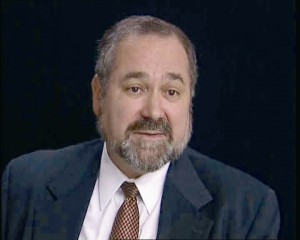
We pay careful attention to the search terms used by those who visit us, and have noticed a very healthy focus on strategy and on secrecy. The two are incompatible.
Strategy, by its inherent nature, must be holistic, transparent, and sustainable. It demands broad collaboration and the broadest possible information-sharing and sense-making.
Secrecy, by its very nature, is reductionist, completely opaque, and generally not sustainable beyond the moment. It restricts collaboration, excludes key stake-holders with relevant information, and does not share effectively.
Michael Herman's book on Intelligence in Peace and War is the best available review of why intelligence at the strategic level should not be secret.
Daniel Patrick Moynihan's book on Secrecy remains one of the best articulations of the hidden costs of secrecy to a Republic.
We most assuredly wish the Director of National Intelligence (DNI) well. His problem is that he is nominally in charge of a collection of secret stovepipes that were built to meet reductionist needs from micro-elements of the national security community, with 90% of the secrecy being imposed to protect turf, not national interests. It is a system based on INPUTS rather than on OUTPUTS and hence destined to remain in grid-lock unless the DNI can reverse that pathology. CIA and DIA have forgotten (if they ever knew how) to do strategic holistic analytic capable of showing the President (and ideally eveyone else) what the totality of the threat picture is, what strategic options can be exercised, at what cost, and how this must be effected across the twelve core policies. As best we can tell, the Office of Management and Budget does not manage and does not do strategy, and neither does the “National Security Advisor.” The press is in full “courtier” mode and incapable of independent thought, while the think tanks are ideological cess pools. That leaves public intelligence, which is in its infancy.
SOLUTION: Elevate DIOSPO to a directorate (DO), make it a DNI center of excellence, and get out of the way. Within 90 days DIA/DO can have 90 countries integrated into an open, commercially-secure information-sharing and sense-making network, and be meeting 50% of the needs of policy, acquisition, and operations action officers who do not receive tailored decision-support now. A special section can provide direct support to the DNI and the National Security Advisor, producing strategic lay-downs with economic implications such as CIA cannot produce now with its existing mind-set, manpower, and constipated contracts. It's time someone set a new standard around here, using open sources to not only help the Secretary of Defense transform acquisition, policy, and inter-agency operations, but to help the DNI hold the secret world accountable for a return on investment that is simply not there. The President–and the Secretary of Defense–desperately need two things: decision-support, and a reduction in secret intelligence and defense spending. DIA/DO is the *only* immediately available, immediately effective, means of accelerating the delivery of those two things to the President and the Secretary.
For more insights into the art of the possible, see Defense OSINT Leadership and Defense OSINT Staff.



